Strictly Personal
Sportswashing? No. Rwandans benefit from the business of sport, By Clare Akamanzi
Published
1 year agoon

In Rwanda, we are banking on sports playing a positive role in our ambitious development plans.
As Kigali prepares to host this year’s Fifa Congress, the usual critics are circling. The language of “sportswashing” has exploded over the last decade, almost exclusively employed by commentators in the West, and almost exclusively deployed against countries in the Global South.
Sports is half a trillion-dollar industry. No longer just consumers of sports, Rwandans are engaging with the business of sports with the ‘Visit Rwanda’ brand. The partnership with Arsenal FC and Paris Saint Germain allows us, each week, to promote Rwanda and particularly our tourism industry to billions of fans.
Visit Rwanda’s partnership with the NBA Africa brought us the first edition of the Basketball Africa League, a success despite taking place in the midst of the Covid pandemic.
Global competition
The impact of these collaborations is already being felt, as Rwanda is evolving as a destination for global competition, from triathlon to beach volleyball to cycling. In this year’s Tour du Rwanda, Eritrean cyclist Henok Mulueberhan won the yellow jersey defeating a field of close to 100 cyclists from all over the world, including former four-time Tour du France winner Chris Froome. In 2025 Kigali will host the first UCI Road World Championships on the continent.
Rwanda’s partnership with Arsenal and Paris Saint Germain generated over US $160 million last year in media value. This, in turn, helped generate US $445 million in tourism revenues courtesy of the over one million visitors to Rwanda in 2022. This revenue represented a 90 percent recovery to pre-pandemic levels, as compared to a global average of 65 percent recovery according to the World Tourism Organisation.
These visitors enjoy stunning views, safe streets, friendly people, pleasant year-round temperatures, a once-in-a-lifetime wildlife experience, and world-leading accommodations.
Positive memories
These guests not only left Rwanda with positive memories; they also played a direct role in improving people’s lives. Tourism directly employs thousands of Rwandans and the revenues accrued allow Rwanda to build hospitals in rural areas, pay for school lunch programmes, and expand the national power grid.
In addition, through our tourism revenue share scheme, communities neighboring Rwanda’s national parks receive ten percent of the revenues generated by the parks to improve their livelihoods. Tourism is truly an industry that impacts not just those who are directly employed in it.
Interestingly, while we have seen such windfalls from our involvement with the global sport, it has also generated criticism from pundits who mostly know next to nothing about Rwanda, and draw upon tired tropes simply because they fit with certain preconceptions of Africa.
It’s alright to disagree with Rwanda’s governance model, but a campaign to undermine investment in a developing country’s economy, which has a real impact on the lives people, is counterproductive and cynical.
African countries struggle against this kind of bias every day. However, we are determined to prove wrong attempts to dictate who we should be and what we should or should not do to improve our lives.
Gatekeepers can choose to argue about whether or not Visit Rwanda should be on their television screens, but they cannot ignore the fact that marketing Rwanda in the way that we have, has had a real impact on the lives of our people.
It is time to move beyond the false narratives that prevail in public discourse on this issue. There is power and opportunity in sports partnerships, and Rwanda is clear on how to pursue prosperity for all. We will not be bullied into ceding our place at the table.
Clare Akamanzi is the CEO of the Rwanda Development Board
You may like
-
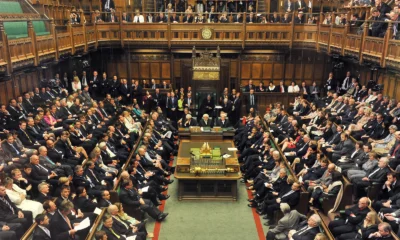

Again, British parliament’s upper house frustrates Rwanda migrant plan
-


Tanzania, Rwanda others recall Johnson & Johnson children’s cough syrup
-
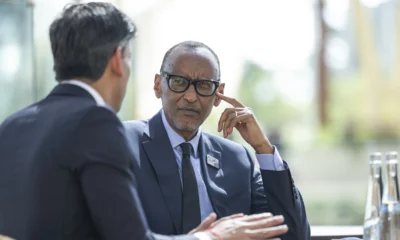

Rwanda, Britain hope for first migrant deportation flights
-
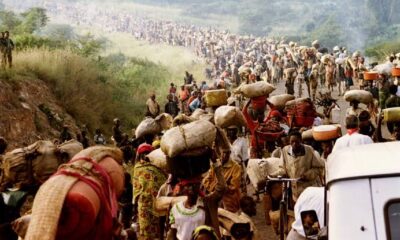

Rwanda commemorates 30 years anniversary of genocide
-
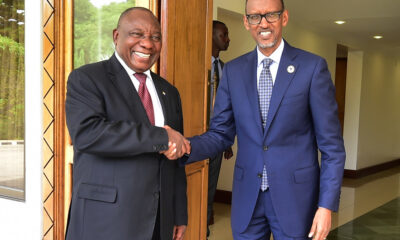

South Africa’s Ramaphosa visits Rwanda for genocide anniversary
-
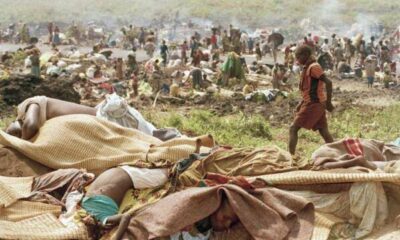

UNESCO to commemorate 30th anniversary of Rwanda Genocide on Sunday
Strictly Personal
Air Peace, capitalism and national interest, By Dakuku Peterside
Published
4 days agoon
April 16, 2024
Nigerian corporate influence and that of the West continue to collide. The rationale is straightforward: whereas corporate activity in Europe and America is part of their larger local and foreign policy engagement, privately owned enterprises in Nigeria or commercial interests are not part of Nigeria’s foreign policy ecosystem, neither is there a strong culture of government support for privately owned enterprises’ expansion locally and internationally.
The relationship between Nigerian businesses and foreign policy is important to the national interest. When backing domestic Nigerian companies to compete on a worldwide scale, the government should see it as a lever to drive foreign policy, and national strategic interest, promote trade, enhance national security considerations, and minimize distortion in the domestic market as the foreign airlines were doing, boost GDP, create employment opportunities, and optimize corporate returns for the firms.
Admitted nations do not always interfere directly in their companies’ business and commercial dealings, and there are always exceptions. I can cite two areas of exception: military sales by companies because of their strategic implications and are, therefore, part of foreign and diplomatic policy and processes. The second is where the products or routes of a company have implications for foreign policy. Air Peace falls into the second category in the Lagos – London route.
Two events demonstrate an emerging trend that, if not checked, will disincentivize Nigerian firms from competing in the global marketplace. There are other notable examples, but I am using these two examples because they are very recent and ongoing, and they are typological representations of the need for Nigerian government backing and support for local companies that are playing in a very competitive international market dominated by big foreign companies whose governments are using all forms of foreign policies and diplomacy to support and sustain.
The first is Air Peace. It is the only Nigerian-owned aviation company playing globally and checkmating the dominance of foreign airlines. The most recent advance is the commencement of flights on the Lagos – London route. In Nigeria, foreign airlines are well-established and accustomed to a lack of rivalry, yet a free-market economy depends on the existence of competition. Nigeria has significantly larger airline profits per passenger than other comparable African nations. Insufficient competition has resulted in high ticket costs and poor service quality. It is precisely this jinx that Air Peace is attempting to break.
On March 30, 2024, Air Peace reciprocated the lopsided Bilateral Air Service Agreement, BASA, between Nigeria and the United Kingdom when the local airline began direct flight operations from Lagos to Gatwick Airport in London. This elicited several reactions from foreign airlines backed by their various sovereigns because of their strategic interest. A critical response is the commencement of a price war. Before the Air Peace entry, the price of international flight tickets on the Lagos-London route had soared to as much as N3.5 million for the economy ticket. However, after Air Peace introduced a return economy class ticket priced at N1.2 million, foreign carriers like British Airways, Virgin Atlantic, and Qatar Airways reduced their fares significantly to remain competitive.
In a price war, there is little the government can do. In an open-market competitive situation such as this, our government must not act in a manner that suggests it is antagonistic to foreign players and competitors. There must be an appearance of a level playing field. However, government owes Air Peace protection against foreign competitors backed by their home governments. This is in the overall interest of the Nigerian consumer of goods and services. Competition history in the airspace works where the Consumer Protection Authority in the host country is active. This is almost absent in Nigeria and it is a reason why foreign airlines have been arbitrary in pricing their tickets. Nigerian consumers are often at the mercy of these foreign firms who lack any vista of patriotism and are more inclined to protect the national interest of their governments and countries.
It would not be too much to expect Nigerian companies playing globally to benefit from the protection of the Nigerian government to limit influence peddling by foreign-owned companies. The success of Air Peace should enable a more competitive and sustainable market, allowing domestic players to grow their network and propel Nigeria to the forefront of international aviation.
The second is Proforce, a Nigerian-owned military hardware manufacturing firm active in Rwanda, Chad, Mali, Ghana, Niger, Burkina Faso, and South Sudan. Despite the growing capacity of Proforce in military hardware manufacturing, Nigeria entered two lopsided arrangements with two UAE firms to supply military equipment worth billions of dollars , respectively. Both deals are backed by the UAE government but executed by UAE firms.
These deals on a more extensive web are not unconnected with UAE’s national strategic interest. In pursuit of its strategic national interest, India is pushing Indian firms to supply military equipment to Nigeria. The Nigerian defence equipment market has seen weaker indigenous competitors driven out due to the combination of local manufacturers’ lack of competitive capacity and government patronage of Asian, European, and US firms in the defence equipment manufacturing sector. This is a misnomer and needs to be corrected.
Not only should our government be the primary customer of this firm if its products meet international standards, but it should also support and protect it from the harsh competitive realities of a challenging but strategic market directly linked to our national military procurement ecosystem. The ability to produce military hardware locally is significant to our defence strategy.
This firm and similar companies playing in this strategic defence area must be considered strategic and have a considerable place in Nigeria’s foreign policy calculations. Protecting Nigeria’s interests is the primary reason for our engagement in global diplomacy. The government must deliberately balance national interest with capacity and competence in military hardware purchases. It will not be too much to ask these foreign firms to partner with local companies so we can embed the technology transfer advantages.
Our government must create an environment that enables our local companies to compete globally and ply their trades in various countries. It should be part of the government’s overall economic, strategic growth agenda to identify areas or sectors in which Nigerian companies have a competitive advantage, especially in the sub-region and across Africa and support the companies in these sectors to advance and grow to dominate in the African region with a view to competing globally. Government support in the form of incentives such as competitive grants ,tax credit for consumers ,low-interest capital, patronage, G2G business, operational support, and diplomatic lobbying, amongst others, will alter the competitive landscape. Governments and key government agencies in the west retain the services of lobbying firms in pursuit of its strategic interest.
Nigerian firms’ competitiveness on a global scale can only be enhanced by the support of the Nigerian government. Foreign policy interests should be a key driver of Nigerian trade agreements. How does the Nigerian government support private companies to grow and compete globally? Is it intentionally mapping out growth areas and creating opportunities for Nigerian firms to maximize their potential? Is the government at the domestic level removing bottlenecks and impediments to private company growth, allowing a level playing field for these companies to compete with international companies?
Why is the government patronising foreign firms against local firms if their products are of similar value? Why are Nigerian consumers left to the hands of international companies in some sectors without the government actively supporting the growth of local firms to compete in those sectors? These questions merit honest answers. Nigerian national interest must be the driving factor for our foreign policies, which must cover the private sector, just as is the case with most developed countries. The new global capitalism is not a product of accident or chance; the government has choreographed and shaped it by using foreign policies to support and protect local firms competing globally. Nigeria must learn to do the same to build a strong economy with more jobs.
Strictly Personal
This is chaos, not governance, and we must stop it, By Tee Ngugi
Published
1 week agoon
April 10, 2024
The following are stories that have dominated mainstream media in recent times. Fake fertiliser and attempts by powerful politicians to kill the story. A nation of bribes, government ministries and corporations where the vice is so routine that it has the semblance of policy. Irregular spending of billions in Nairobi County.
Billions are spent in all countries on domestic and foreign travel. Grabbing of land belonging to state corporations, was a scam reminiscent of the Kanu era when even public toilets would be grabbed. Crisis in the health and education sectors.
Tribalism in hiring for state jobs. Return of construction in riparian lands and natural waterways. Relocation of major businesses because of high cost of power and heavy taxation. A tax regime that is so punitive, it squeezes life out of small businesses. Etc, ad nauseam.
To be fair, these stories of thievery, mismanagement, negligence, incompetence and greed have been present in all administrations since independence.
However, instead of the cynically-named “mama mboga” government reversing this gradual slide towards state failure, it is fuelling it.
Alternately, it’s campaigning for 2027 or gallivanting all over the world, evoking the legend of Emperor Nero playing the violin as Rome burned.
A government is run based on strict adherence to policies and laws. It appoints the most competent personnel, irrespective of tribe, to run efficient departments which have clear-cut goals.
It aligns education to its national vision. Its strategies to achieve food security should be driven by the best brains and guided by innovative policies. It enacts policies that attract investment and incentivize building of businesses. It treats any kind of thievery or negligence as sabotage.
Government is not a political party. Government officials should have nothing to do with political party matters. They should be so engaged in their government duties that they literally would not have time for party issues. Government jobs should not be used to reward girlfriends and cronies.
Government is exhausting work undertaken because of a passion to transform lives, not for the trappings of power. Government is not endless campaigning to win the next election. To his credit, Mwai Kibaki left party matters alone until he had to run for re-election.
We have corrupted the meaning of government. We have parliamentarians beholden to their tribes, not to ideas.
We have incompetent and corrupt judges. We have a civil service where you bribe to be served. Police take bribes to allow death traps on our roads. We have urban planners who plan nothing except how to line their pockets. We have regulatory agencies that regulate nothing, including the intake of their fat stomachs.
We have advisers who advise on which tenders should go to whom. There is no central organising ethos at the heart of government. There is no sense of national purpose. We have flurries of national activities, policies, legislation, appointments which don’t lead to meaningful growth. We just run on the same spot.
Tee Ngugi is a Nairobi-based political commentator
EDITOR’S PICK


South African police arrest 8 Nigerians following attacks on officers
The South African Police Service (SAPS) have confirmed the arrest of eight Nigerians for allegedly attacking police officers in Kimberley,...


Africa’s largest tech hub AfriLabs welcomes 16 new additions
The largest network technology hub in Africa, AfriLabs, has announced the admission of 16 new hubs into its fold, thereby...


Wife of Zambian music star Yo Maps sues businessman over alleged cyberbullying
The wife of Zambian music sensation, Elton Mulenga, popularly known as Yo Maps, Kidist Kifle, has sued a Lusaka-based businessman...
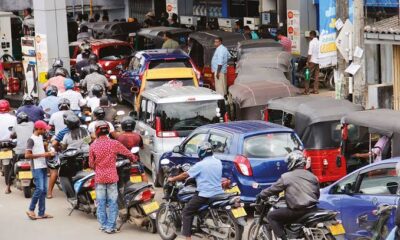

IMF gives reasons why it advised Nigeria to remove fuel subsidy
The International Monetary Fund (IMF) has given reasons why it advised Nigeria to end the fuel subsidy regime which it...


Nigerian Chess master Tunde Onakoya sets 58-hour new chess-a-thon record, pushes for 60 hours
Nigerian chess master, Tunde Onakoya, on Saturday, achieved his dream of setting a new Guinness World Record for the longest...


Survey ranks Egypt, Ethiopia, Morocco, South Africa among 15 ‘cheap countries’ for family trips
A recent survey carried out by Insider Monkey, an investment website that tracks corporate insiders and hedge funds, has ranked...


Nigerians drum support for chess master Tunde Onakoya as he attempts to break world record
Nigerians from all walks of life, including politicians, captains of industry and celebrities, have drummed up support for chess master,...


SA internet service provider Kaya Konekta launches data access for underserved communities
South Africa’s leading Internet Service Provider (ISP), Kaya Konekta (KaKo), has launched new operations aimed at reaching underserved communities in...


Zambian opposition party decries rise in tribalism, corruption, calls for national dialogue
One of Zambia’s main opposition party, the Socialist Party (SP), has decried what it calls the rising tribalism, repression and...


‘Reconsider your anti-people policies, they are causing hardship, insecurity in Nigeria’— PDP tells Tinubu
Nigeria’s main opposition party, the Peoples Democratic Party (PDP), has called on President Bola Tinubu to consider what it calls...
Trending
-

 Tech2 days ago
Tech2 days agoNigeria’s MAX partners Ghana’s Kofa in e-bike financing deal
-

 Sports2 days ago
Sports2 days agoTop European, Asian clubs on alert as Super Eagles keeper set to make contract decision
-

 Metro1 day ago
Metro1 day ago‘Reconsider your anti-people policies, they are causing hardship, insecurity in Nigeria’— PDP tells Tinubu
-

 Metro2 days ago
Metro2 days agoZambia asks EU to help strengthen its democratic initiatives ahead of 2026 elections


